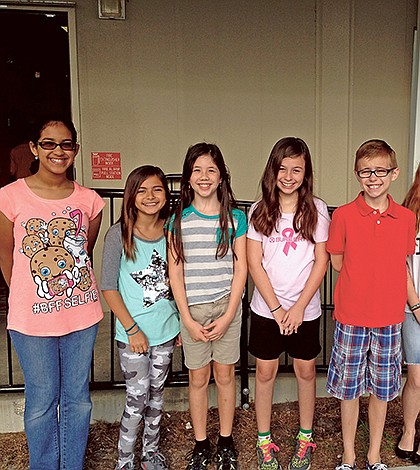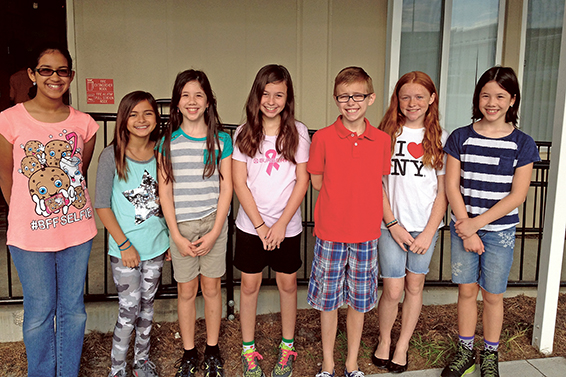- October 23, 2024
-
-
Loading

Loading


WINDERMERE — Among schools throughout Florida, no student in grades four to six performed better than Keene’s Crossing Elementary fifth-grader Srika Gopal in the Florida Global Issues Problem Solving junior individuals competition.
The competition was part of the Future Problem Solvers Program International, which was held March 15 to 18 in the DoubleTree at SeaWorld.
By winning, Srika advanced to the international competition June 11 to 14 at Iowa State University in Ames, Iowa, and will include participants from 45 states and 16 countries.
“She was excited,” said Amanda Kropiewnicki, a fifth-grade teacher and coach of the Keene’s Crossing team. “We can’t talk to the kids during the day, because we’re down there grading them (anonymously). We don’t want to hear what they did — we don’t want to cheat. She liked the Future Scene. ... She did really well.”
Classmates Madison Silkey and Amanda Chambers finished sixth and fourth in the individuals competition, Neil Ipsen won the Magic/multi-school competition, and one of the school’s junior teams finished fourth among 42 junior teams. Kara Totten, Rebecca Osorio and Kaylee and Rachel Paterson comprised that team. Erin Hinz also coaches the students and teaches fifth grade.
To get to the state level, these students partook in two practice problems and a qualifying problem in the Central Florida district. Each level involves a unique topic: The topics for the practice problems were The Impact of Social Media and Processed Foods; the qualifying problem was on Propaganda; and the state problem was Enhancing Human Potential. The international conference topic is Intellectual Property.
“The kids have a six-step problem-solving process, where they’re given a Future Scene based on some certain topic and some challenges that arise and basically come up with an action plan to solve a problem and make it into a booklet,” Kropiewnicki said. “You come up with solutions to solve the problem and meet criteria to see which one is going to be the best solution and how it will solve the problem. It’s very futuristic: having biotech arms and things ... in the future but not so far-fetched that they could happen in the next few years.”
The six steps go in the following order: Possible Challenges, The Underlying Problem, Solutions, Criteria, Grid and Action Plan. Step one involves identifying all issues related to the topic. Step two is stating an important problem of the Future Scene. In step three, students form many ideas for that important problem. The objective in step four is to adequately compare solutions to pick the best to develop. Grid is a ranking of the top ideas to prove the best solution to develop a plan for in step six.
Coaches grade participants’ booklets, which have no means of identification on them, based on a detailed scoresheet, Kropiewnicki said.
“We teach them this whole process,” she said. “It’s a very long process, and there’s a certain way you have to write the steps and stuff like that. We teach the gifted classes this process … all year, and then in February, we go and compete in the district level.”
The process is rigorous, but students often find creative solutions to real problems many adults could not while following the rigid booklet process, Kropiewnicki said.
“Participants develop skills of teamwork, communication, research, critical and creative thinking, analysis, synthesis and evaluation,” Florida FPSPI Director Wanda Gray said. “They learn to apply these skills to situations that are futuristic but oriented to real life. The competitive aspects of FPS are fun, but the benefits (include) learning a process that can be used for the rest of their lives. This is the reason that teachers, parents and students fall in love with the program and continue to stay involved with it for many years.”
For more on FPSPI in Florida, visit flfpsp.org.
Contact Zak Kerr at [email protected].